Do you own a swimming pool that isn’t living up to its full potential? Maybe it’s not as clean as you’d like or the water temperature isn’t quite right. I was in the same boat until I learned a simple lesson that has transformed my pool experience. In this blog post, I’ll share with you how I improved my swimming pool with one easy lesson that you can apply to your own pool. By the end of this post, you’ll be ready to dive into a crystal clear and perfectly balanced pool.
Researching solutions for the problem
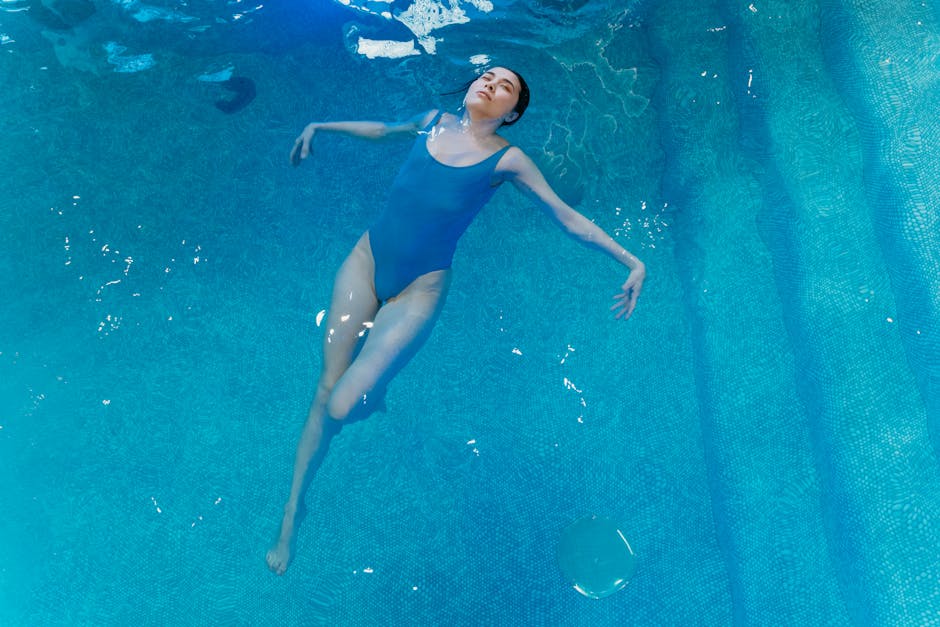
When I first noticed issues with my swimming pool, I wasn’t sure where to turn for help. The water was cloudy and the pH levels were off, despite my best efforts to maintain it on my own. I knew I needed to research solutions to solve these problems, so I started looking online for articles and forums related to swimming pool care.
After some digging, I found several helpful resources that offered advice for troubleshooting common issues with swimming pools. From these resources, I learned about different types of pool treatments, filtration systems, and water-testing kits. I also discovered helpful tips for maintaining the pool’s water chemistry and how to properly balance the pH and alkalinity levels.
By doing my research, I was able to find the right products and techniques to improve the quality of my swimming pool’s water. I also discovered preventative measures to take to keep my pool looking and feeling great year-round. Without this research, I would have continued to struggle with maintaining my swimming pool.
Finding a reputable swimming pool professional to help address the issue

If you are not sure how to address the issues with your swimming pool, it is important to consult a reputable swimming pool professional for guidance. You can rely on their experience and expertise to help you determine the root cause of the issue and come up with an effective solution to improve your swimming pool. Don’t be afraid to ask for referrals from friends and family, read online reviews, and check for any professional certifications or affiliations. By finding the right swimming pool professional, you can ensure that your pool is in good hands and will be able to provide you with maximum enjoyment and relaxation.
Discussing the problem and potential solutions with the professional
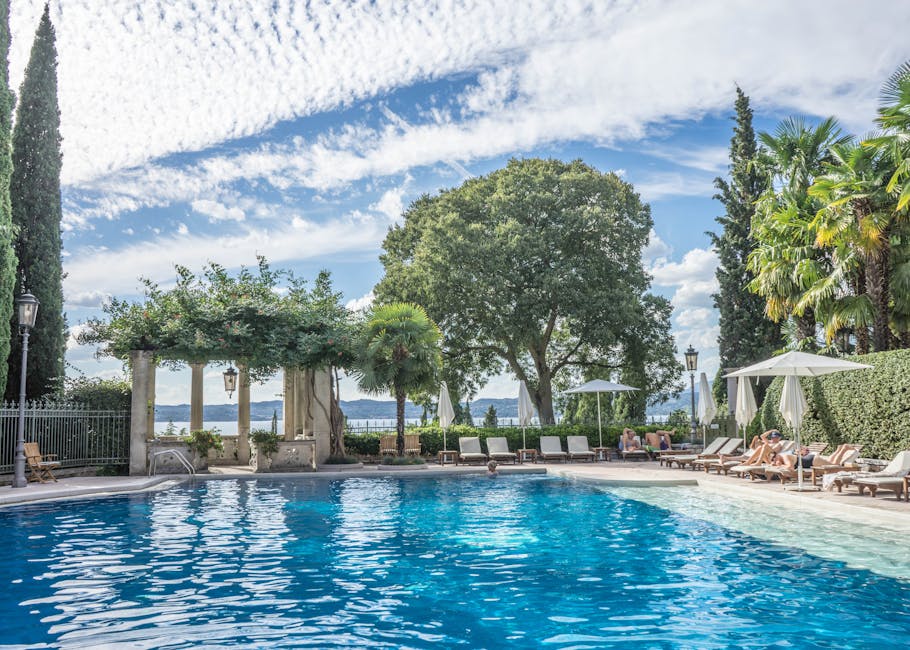
When it comes to improving your swimming pool, one of the most important steps is to discuss the problem and potential solutions with a professional. Whether you’re dealing with leaky pipes, algae growth, or worn-out filters, consulting with an experienced pool expert can help you identify the root cause of the issue and develop a plan to fix it. In many cases, a simple lesson on pool maintenance techniques can go a long way in helping you keep your pool in top shape. By working with a professional, you can get the guidance and support you need to create a safer, cleaner, and more enjoyable swimming experience for you and your family.
Learning proper maintenance techniques from the professional
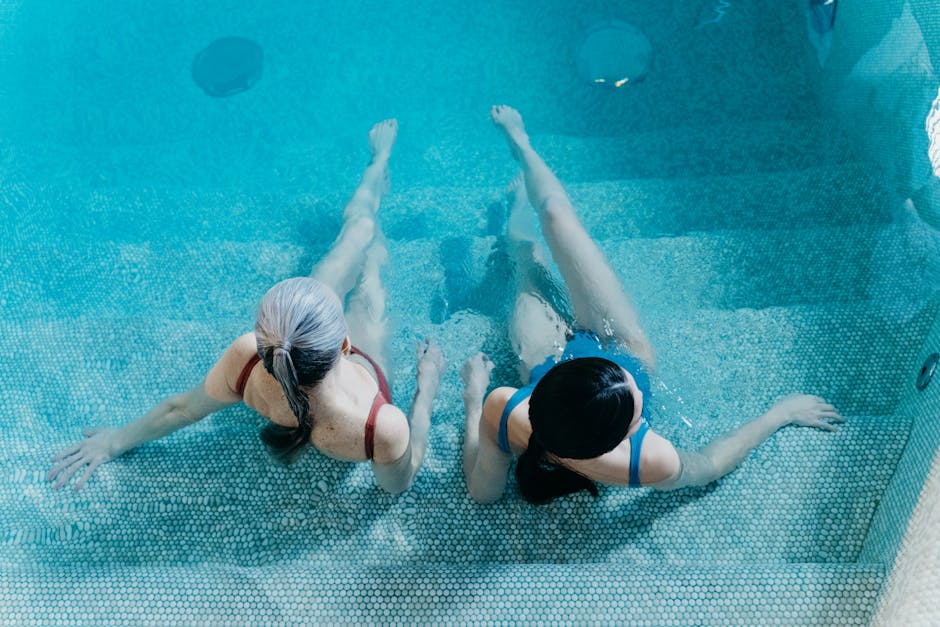
Learning proper maintenance techniques from a professional can greatly improve the longevity and overall appearance of your swimming pool. Some of the techniques that professionals use include chemically balancing the water, regularly cleaning the pool of debris, and maintaining the filters and pumps to ensure proper water circulation. By learning these techniques, you can save time and money in the long run, while keeping your pool looking and functioning like new. It’s important to seek out a qualified professional who can teach you these techniques to ensure your pool is properly cared for and maintained.
Making necessary changes to the pool’s filtration system or chemical balance

A well-functioning filtration system is vital to keeping your swimming pool crystal clear and free from debris. Without regular maintenance and cleaning, your pool’s filter can quickly become clogged and inefficient. To improve the filtration system, start by cleaning or replacing the filter as needed. A dirty filter not only reduces the flow of water, but it can also harbor harmful bacteria and other germs that can affect the pool’s chemical balance. It is also important to regularly test and balance the pH and chlorine levels in the water. Chemical imbalances can not only cause skin and eye irritation but can also promote germ growth.
Implementing a regular maintenance schedule for the swimming pool
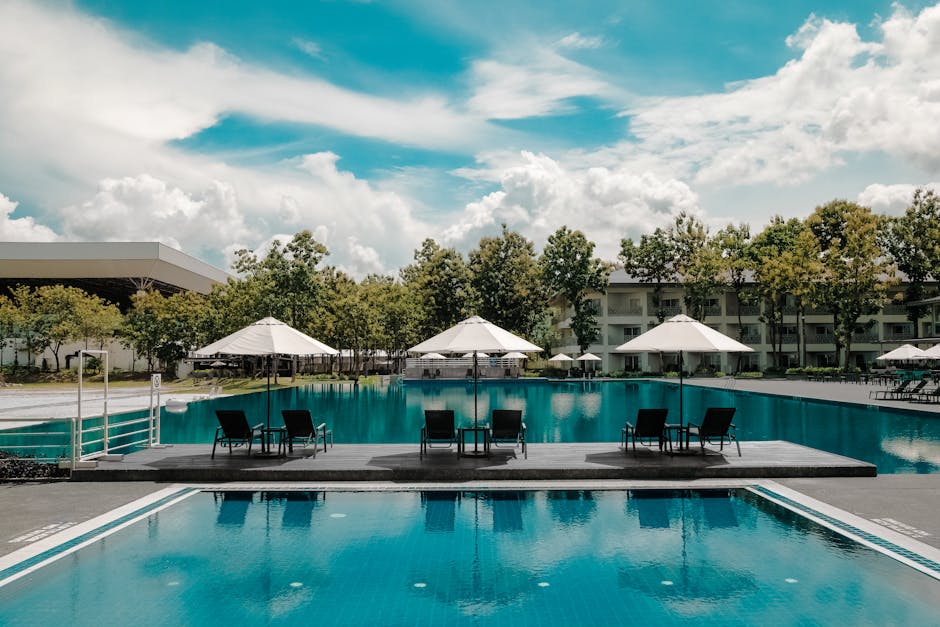
Implementing a regular maintenance schedule for your swimming pool is crucial to keep it in good condition and safe for your family and guests. By creating a weekly or monthly schedule, you can stay on top of tasks such as skimming the surface, cleaning out the pump filter, and balancing the pool chemicals. It’s also important to regularly brush the walls and floor of the pool to prevent algae buildup and keep the water sparkling clean. By making pool maintenance a priority and sticking to a schedule, you can enjoy your pool all season long without any unexpected surprises or costly repairs.
Investing in high-quality cleaning equipment, such as a robotic pool cleaner or skimmer
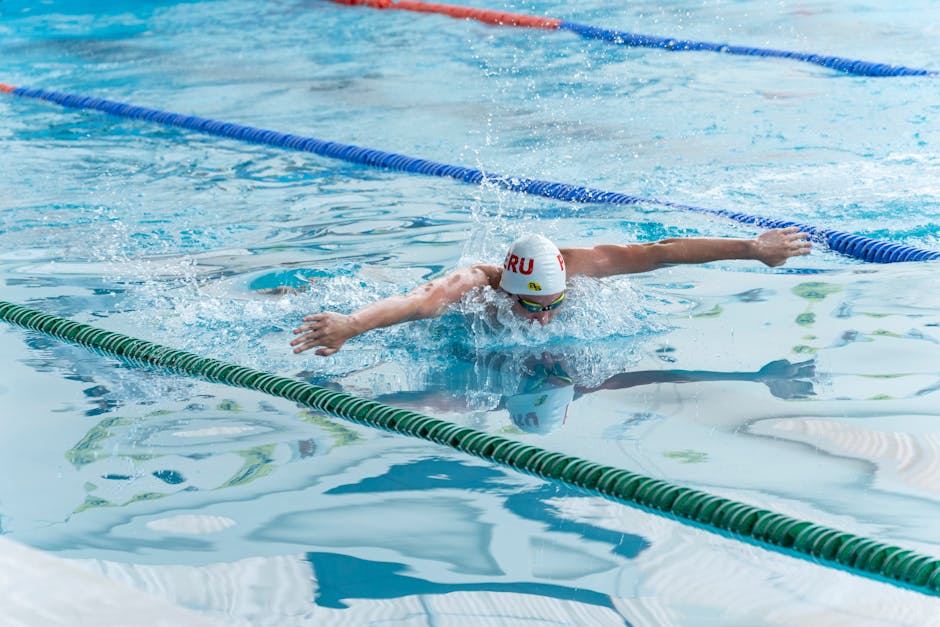
Investing in high-quality cleaning equipment is a game-changer when it comes to maintaining a crystal-clear swimming pool. A robotic pool cleaner, for instance, can clean every nook and cranny of the pool, including hard-to-reach spots, by working its way through the walls and floors. It does not only save your valuable time but also reduces water and energy consumption. Another essential equipment that can help in keeping a pool clean is a skimmer. A skimmer removes debris, such as leaves, twigs, and insects from the pool’s surface, before they can settle at the bottom and decompose, which can cause bacteria and algae to grow. In the end, investing in high-quality cleaning equipment not only makes your pool look great but can also save you time, energy, and money in the long run.
Educating myself on proper water chemistry and understanding the importance of pH levels, alkalinity, and chlorine levels
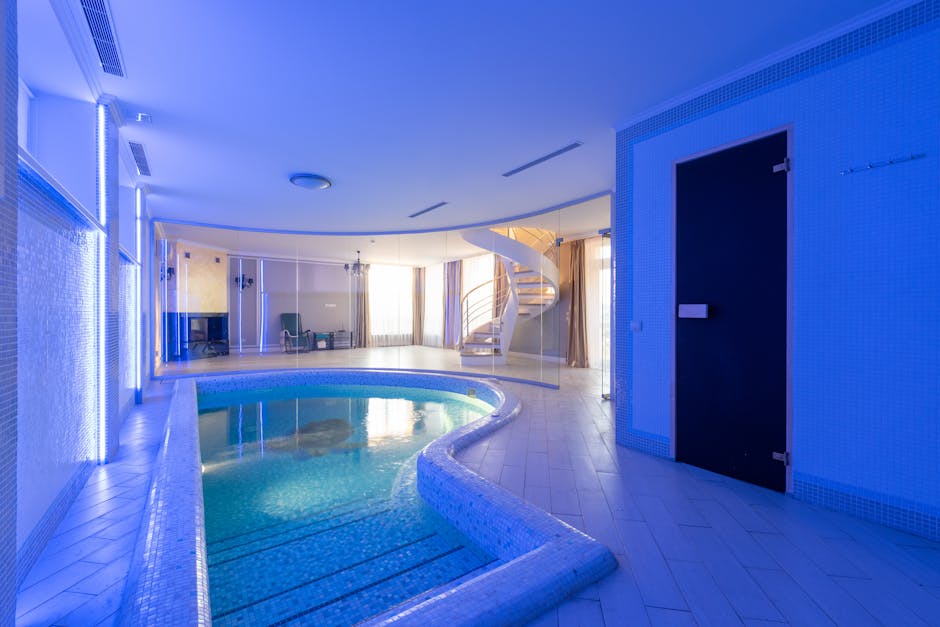
As a swimming pool owner, I used to think that keeping the water visually clean was enough. But after attending a session on proper water chemistry, I now understand the importance of maintaining pH levels, alkalinity, and chlorine levels in my pool.
pH levels can affect the effectiveness of chlorine, so it’s crucial to maintain a pH level between 7.2 to 7.8. Alkalinity plays a role in buffering the pH, and it should be kept between 80 to 120 ppm (parts per million). Chlorine levels should read between 1 to 3 ppm to ensure proper sanitation.
Checking these levels can be done using test strips or a drop test kit. Maintaining these levels can prevent the growth of harmful bacteria and extend the life of pool equipment. Educating myself on proper water chemistry has significantly improved the quality of my swimming pool and provided a safer environment for my family and guests to enjoy.




